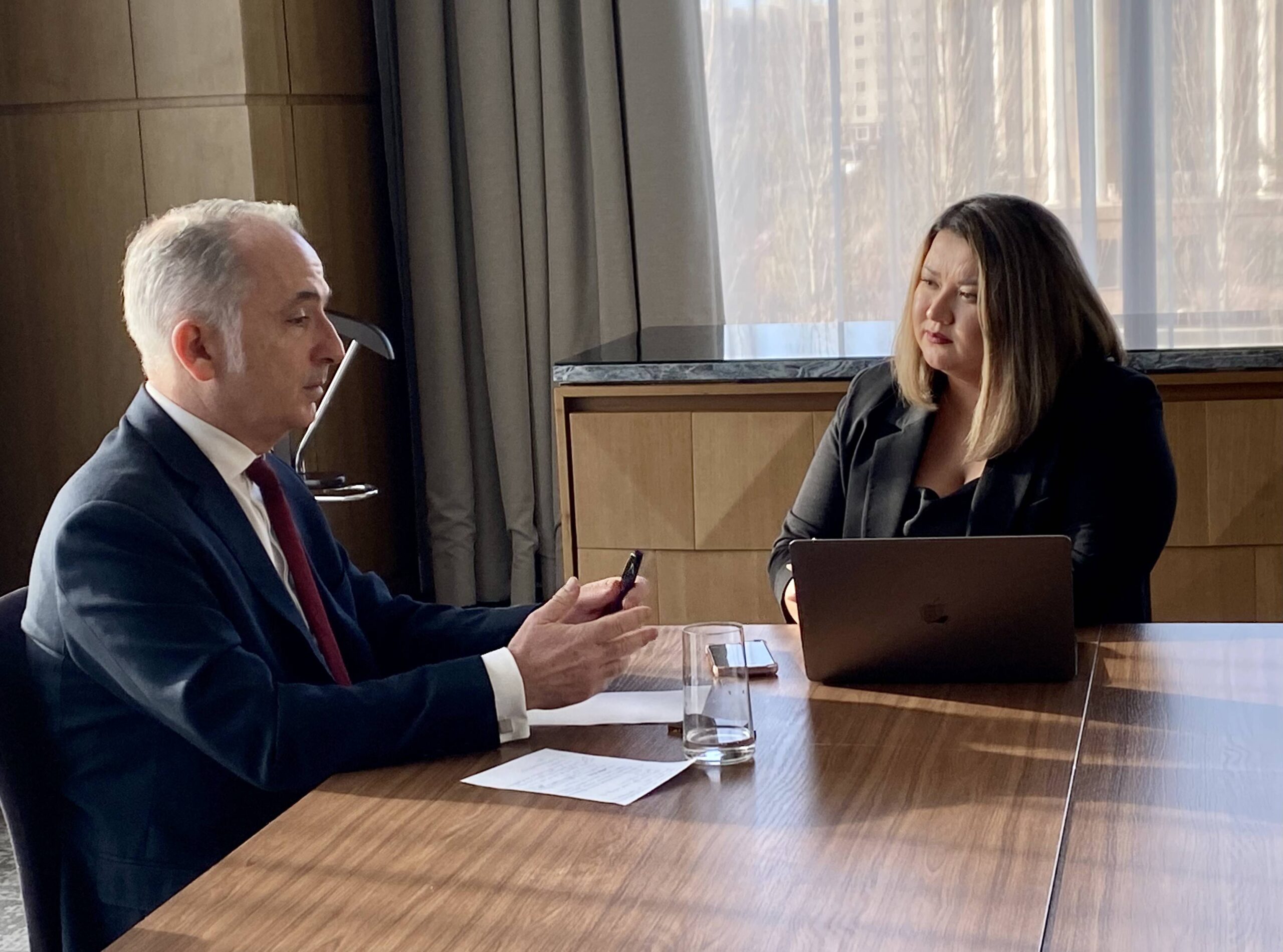ASTANA — The financial sector of Kazakhstan underwent a thorough evaluation as part of the 2023 Financial Sector Assessment Program (FSAP) led by the International Monetary Fund (IMF)’s 2023 IV Article Mission, which concluded this November. This assessment aims to identify critical areas for reform to enhance the sector’s resilience and policy framework.

Grippa said that once there is consensus at the global level to accelerate decarbonization, Kazakhstan will have to adapt, and it is vital that the government is prepared for this transition.
Photo credit: The Astana Times/ Aida Haidar
The Astana Times spoke with Pierpaolo Grippa, Senior Economist at the IMF’s Monetary and Capital Markets Department, who spearheaded the FSAP program in Kazakhstan. According to Pierpaolo Grippa, the FSAP is a long-standing program initiated over two decades ago in response to the Asian financial crisis. The program, conducted jointly by the IMF and the World Bank for emerging markets, assesses the financial systems of countries to prevent systemic crises and cross-border spillovers.
“This is part of the so-called surveillance mandate of the IMF,” he explained, with regular assessments every five to ten years for systemically essential jurisdictions.
Grippa acknowledged Kazakhstan’s progress in banking supervision, particularly the shift from compliance-based approaches to risk-based supervision over the last decade.
“Back then, it was much more compliance-based. Sometimes, we define it, in short, like a bit more box-ticking than assessing the risk profile of banks. Now, it has moved much more towards risk-based supervision. This, of course, is a very positive development,” he noted.
Grippa emphasized the importance of clear guidelines for the removal and appointment of regulatory heads stating, “…the clarity that the chairperson of the agency can be removed only on motivated judgment made explicit and transparent.”
While acknowledging effective communication by the NBK, Grippa raised transparency concerns, especially during leadership changes. He emphasized, “It’s good to make it clear what these reasons [for leadership change] are so that there is no hint at the fact that maybe the government is controlling these authorities.”
Grippa emphasized the correlation between the financial sector and the economy, particularly the oil and gas sector dependency. He highlighted the need for Kazakhstan to diversify its economy, especially with the global push for a low-carbon future.
“That is something [economy’s oil and gas dependency] that is so prominent in the economy that it really dictates the state of all things and has an impact on the financial system. I think this is what the country experienced in the mid-2010s, with the sharp drop in oil prices and the consequent slowdown of the economy with repercussions also on the banking system. So, I will say that this is an important consideration because it has always been true that it was important for Kazakhstan to diversify away from oil, which is, of course, an important resource but is subject to high volatility. But this move has become even more important with the necessity for the world to transition to a low-carbon economy,” Grippa said.
He outlined potential risks associated with a fast-paced decarbonization scenario, emphasizing the importance of preparation and adaptation. This year’s FSAP has analyzed what could be the impact on Kazakhstan’s banking sector in case of accelerated decarbonization at the domestic and, more importantly, global level.
“We came out with estimates that the amount of credit losses in the banking sector could be higher by up to 30% depending on the banks in a scenario of fast decarbonization in a horizon of five to seven years,” he said.
Grippa highlighted that once there is consensus at the global level to accelerate decarbonization, a country like Kazakhstan will have to adapt to this acceleration, and it is vital that the government is prepared for this transition.
“Many aspects need to be considered in the financial sector. The measurement of the risk from transition, but of course, also the understanding of the opportunities that this creates in terms of green finance or supporting borrowers inclined to transition away from high carbon procedures or processes or products. So, this is simultaneously a reasonable opportunity for the financial sector to be properly measured and acted upon,” he said.
Grippa discussed the results of solvency stress tests for different scenarios besides decarbonization, indicating overall resilience but suggested the need for certain banks to bolster their buffers. He also highlighted potential risks such as economic and geopolitical fragmentation and domestic challenges related to reforms for sustained output growth.
The 2023 Financial Sector Assessment Program highlighted critical areas for Kazakhstan’s financial sector improvement. From crisis preparedness to institutional stability and transparency, the IMF provides insights to guide reforms and bolster the sector’s resilience. Kazakhstan faces challenges, but with strategic reforms, it can position itself for sustained growth and navigate the evolving global financial landscape.

